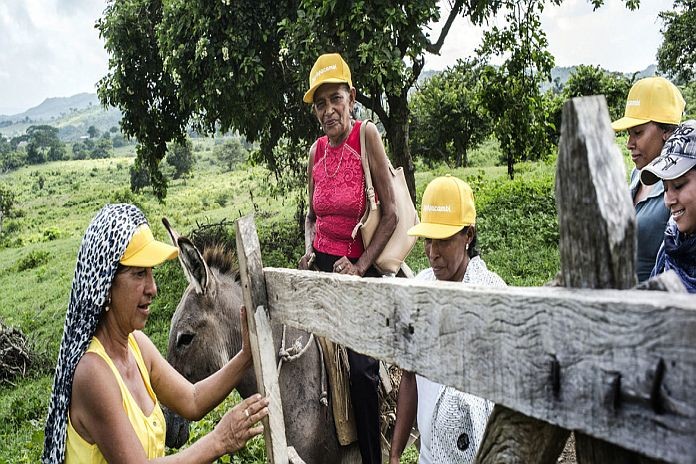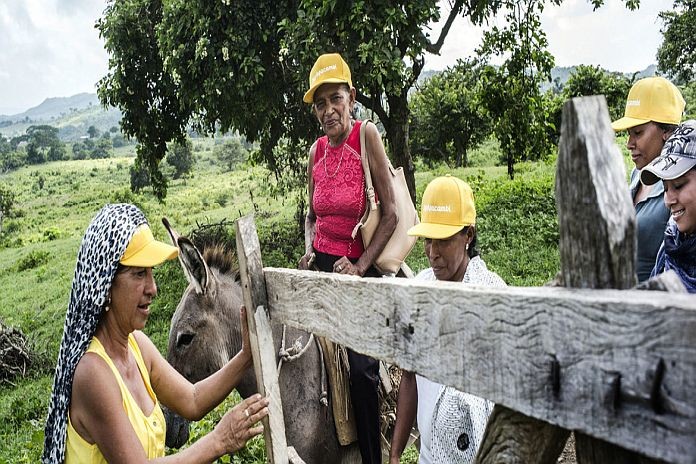Colombians cling tenaciously to peace gains, security council hears


COLOMBIA / USA – Five years after an historic Peace Agreement was reached in Colombia, the process continues to show the benefits of ending the conflict through negotiation and keeping victims at the heart of the discussion moving forward.
That was the main message from the Special Representative and head of the UN Verification Mission in Colombia, Carlos Ruiz Massieu, delivered to ambassadors at the Security Council on Thursday.
For him, the first former conflict zone fully cleared of landmines, and the extension of the Truth Commission, are examples of this success.
Massieu was briefing the Council on the Secretary-General’s Quarterly Report about the situation in the Latin American nation.
“As the secretary-general has said, this is an opportunity to reflect on what we have achieved as well on what we are missing, and renew the commitments to persevere, day by day, to consolidate peace”, he said.

Work in progress
For the Special Representative, accomplishing those goals will depend, to a large extent, on the capacity of all parties to fulfil the commitments they made five years ago.
Massieu highlighted the leadership capabilities of ex-combatant women and female social leaders, saying their “full participation and the application of a gender approach, is a necessary condition for the consolidation of peace.”
Despite these advancements, the Special Representative expressed concern that some of the main priorities are the ones in greatest jeopardy.
Noting that Afro-Colombian and indigenous communities are the most affected, he argued that “this requires urgent and simultaneous implementation of all the security guarantees provided in the peace agreement.”
Addressing the need to develop alternatives to illicit economies, he said “the long-term success of initial investments is contingent upon the Agreement’s promise of reshaping rural Colombia.” For him, this only happens “by creating sustainable development opportunities, State services and institutions for communities whose expectations remain unfulfilled.”
Massieu concluded saying that, during these five years, the world has “seen the tenacity of the Colombian society to complete its transition to peace.”
“As we embark on a key stage in the consolidation of the process, I thank the Council for its confidence, an essential source of support for Colombia”, he added.
Violence
In the report, the secretary-general underscores some “daunting challenges and risk factors” the country still faces, namely continuing violence in several regions.
In the period covered by the report, 26 June to 24 September 2021, the UN registered the killings of 14 FARC-EP former combatants (all men), bringing the total to 292 (nine women) since the signing of the Agreement.
In addition, the Office of the High Commissioner for Human Rights received information on the killings of 43 human rights defenders, for a total of 158 killed in 2021. Furthermore, 11 massacres were documented, accounting for some 38 fatalities.
Source: caribbeannewsglobal.com


